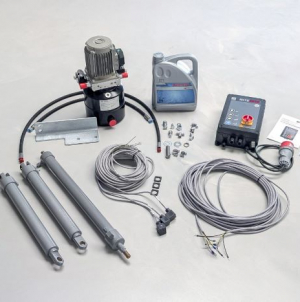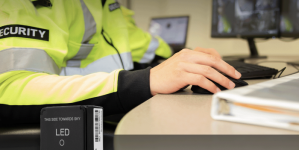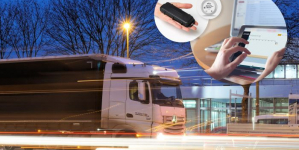-
Rite-Hite unveils new range of hydraulic kits to upgrade and extend dock leveller performance - 1 day ago
-
REWE and Cimcorp automate fresh supply chain for Berlin supermarkets and stores - 1 day ago
-
Q1 – A recovery period or time to fix, switch and scale? - 1 day ago
-
NULOGY’S SHOP FLOOR SOFTWARE TO POWER COMPLETE CO-PACKING’SOPERATIONS - February 13, 2026
-
Why lead generation depends upon good content - February 13, 2026
-
Wallapop and Albatross Sign Strategic Partnership to Bring Real-Time AI Discovery to the Future of Consumer-to-Consumer Commerce - February 12, 2026
-
Thorworld ramp helps Hubergroup to streamline its unloading operation - February 6, 2026
-
TRACKER INNOVATION FROM QUECLINK TO BOOST STOLEN VEHICLE RECOVERY PERFORMANCE - February 4, 2026
-
Flexi Narrow Aisle hits 50! - January 29, 2026
-
DERRY BROS ATTRACTS RECORD NUMBERS OF FREIGHT CUSTOMERS SEEKING CUSTOMS SUPPORT - January 29, 2026
UK Fire Door Safety Week 2017: September 25th to October 1st.
Facility and security managers are reminded in Fire Door Safety Week – September 25th to October 1st – of the need to ensure that fire doors are unlocked and unblocked during times of occupancy.
Site managers can use a smartphone app called Lodgic, costing £12 per month, to get confirmation from an independent monitoring centre that each fire door on site has been checked.
The app features a ‘tour’ program with an agreed activity log; a message prompts the user on site to go and check each fire door at a pre-set time – which can only be changed by an authorised manager.
The staff member visits each door and uses a smartphone and the Lodgic app to scan a printed QR barcode, using the camera function, which is attached to a plaque near the exit point and uniquely identifies each door.
At the Lodgic control centre in Redditch, the software system remotely monitors the activity logged on the app. There is an automatic alert if each scheduled activity is not completed within pre-set time parameters. First, a series of warning prompts are sent to the user on site; if the task is still not completed then the Lodgic centre manager is alerted and will phone the designated member of staff immediately.
If there is no response, the agreed escalation of an incident can include contacting senior staff, on or off site.
The scanning of each barcode is time stamped, with the physical location recorded from the smartphone’s GPS system – so that there is a record for the company and the fire inspection authority that activity was completed on time for each door on a tour.
Other services available through parent company Lodge Service include patrol and response and ‘ad hoc’ guarding, with its intelligence centre dispatching teams to repair damage or secure a site when required.

































